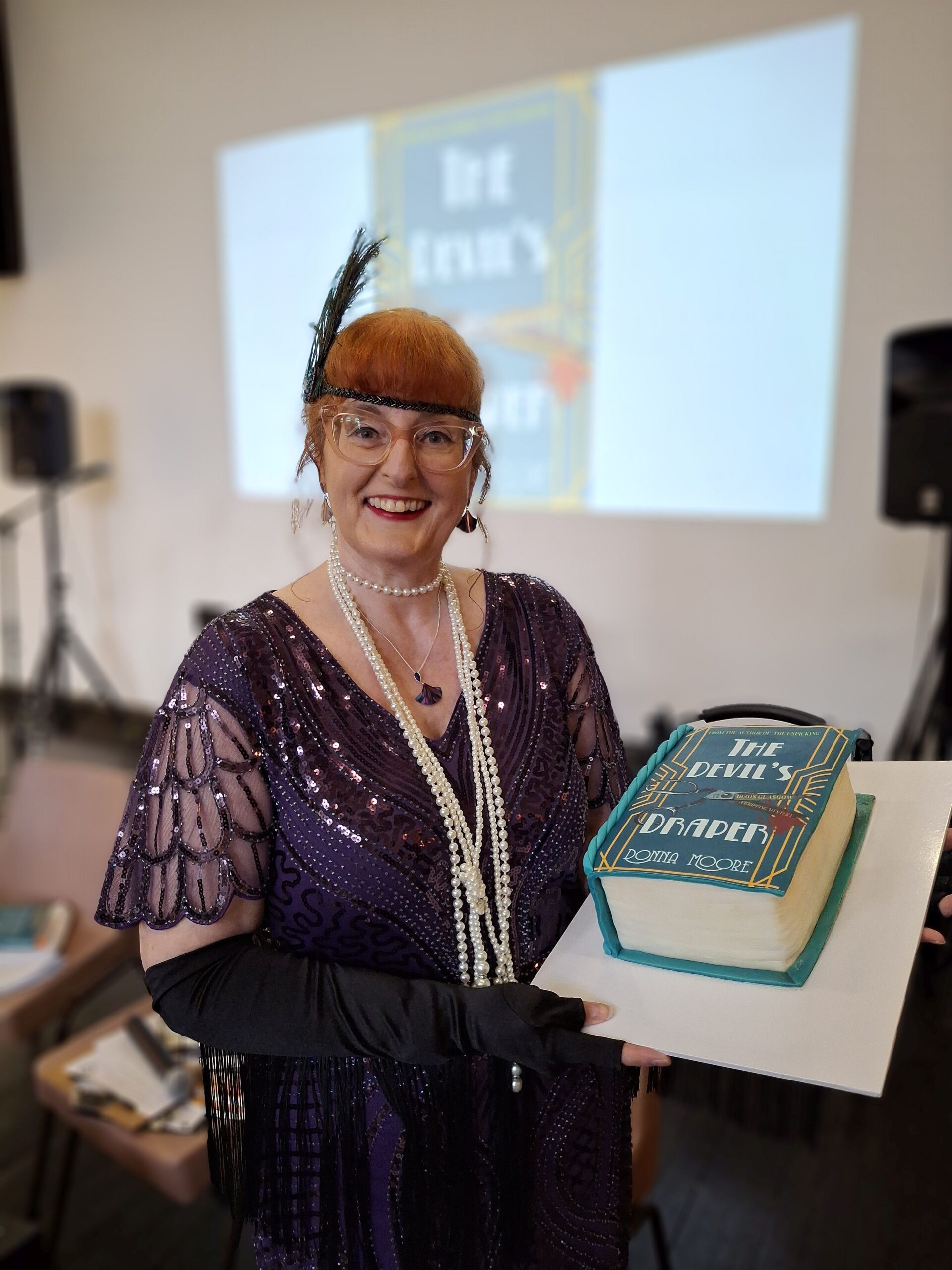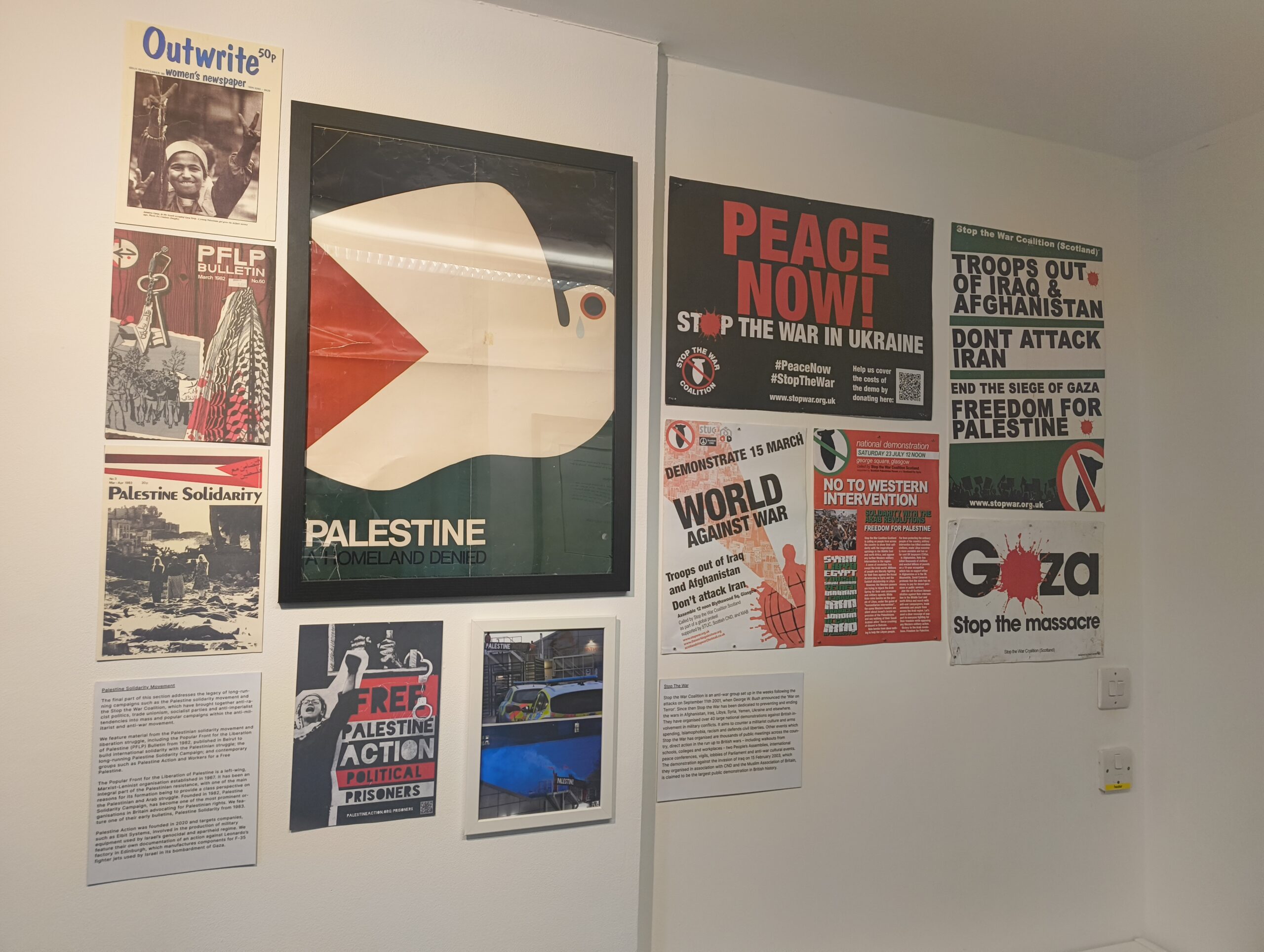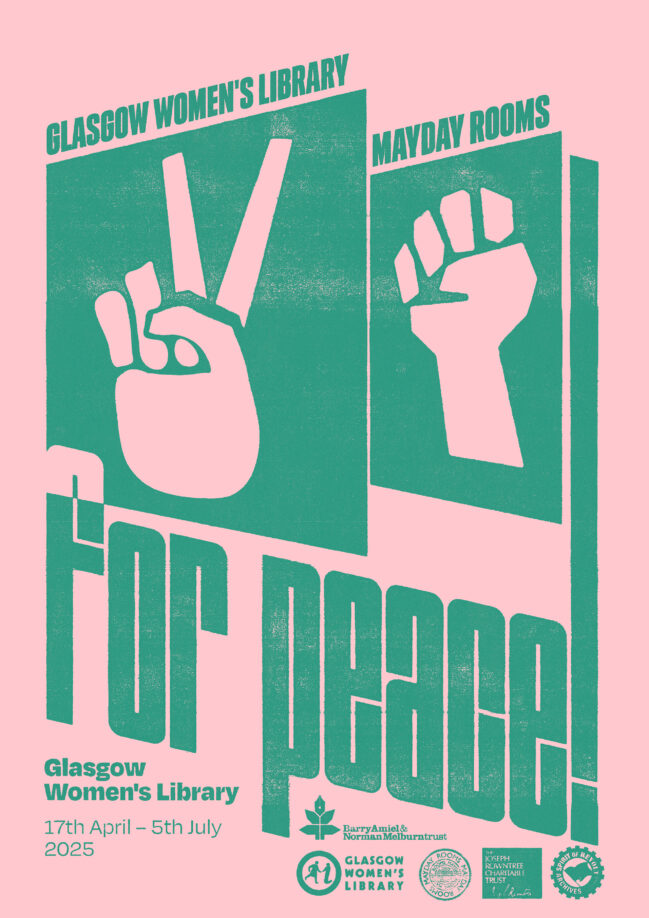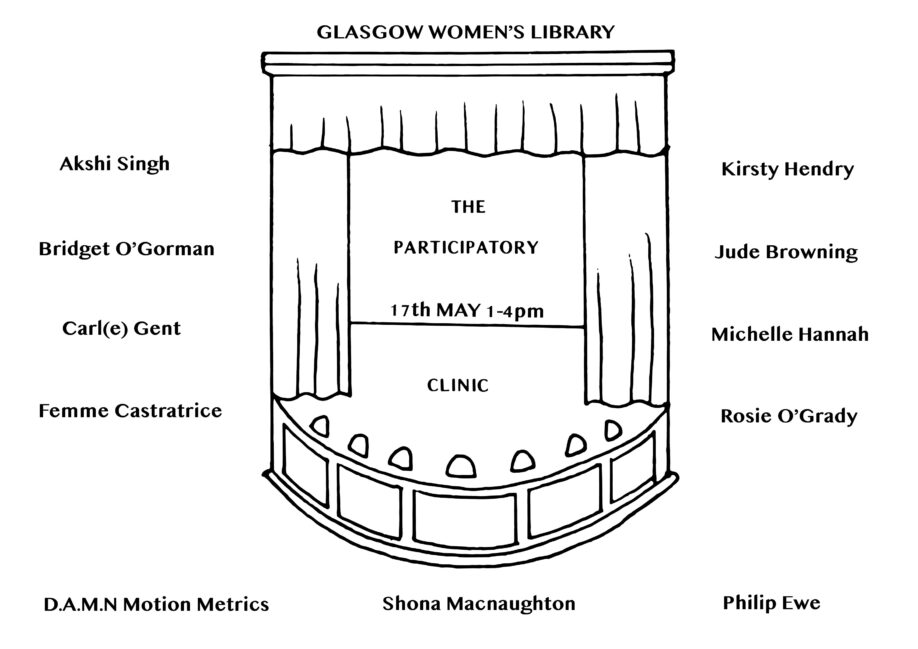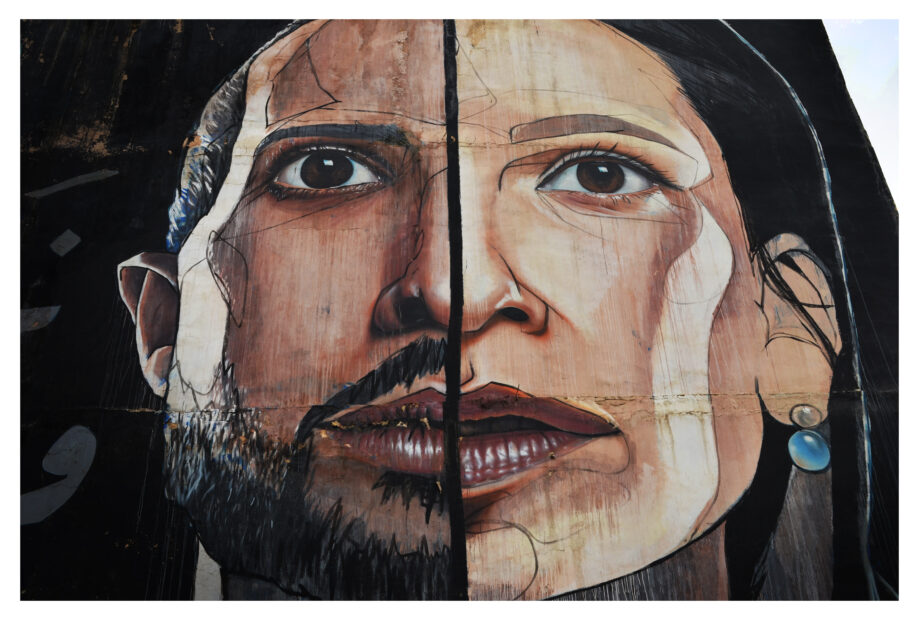How Book Bunk and GWL have Thrived under the Pandemic
Our ‘Thriving Through Covid’ Mistress Class brought us together again with our much-loved sister organisation Book Bunk, who are working tirelessly to revitalise and reimagine public library spaces in Nairobi. We were thrilled to be partnered with Book Bunk in 2019-2020, as part of a British Council ‘Cultural Heritage for Inclusive Growth’ project, and it was such a joy to connect with them again to share, reflect on and celebrate our learning throughout this unprecedented time. Read on to find out more…
A library can be the centre, the beating heart of a community: it’s where people come together, where they find inspiration, conversation, and support. But what happens when these “archive[s] of longings”, as Susan Sontag once described them so beautifully, are forced to remain closed to the public, when these former places of both social encounter and silent introspection are no longer there for the people in the way we are used to and need? What can libraries do to adapt and to meet the changing and sometimes very specific needs of their members and communities?
This question and many more were ones that both Glasgow Women’s Library and Book Bunk had to tackle when the pandemic struck in 2020. With the doors of all libraries having to remain closed for the time being, it was essential to come up with different coping strategies and ways of how to face these difficulties and challenges head-on, so that all those who depended on the continued existence of the libraries and their programmes and services for different reasons wouldn’t be left to fend for themselves.
Now, eighteen months after the start of the pandemic, Book Bunk and GWL got together in a virtual reunion to talk about all the experiences we’ve had in these challenging times – the things we’ve learned, the skills we’ve gained, the do-nots we’d rather not repeat. Twenty-one staff members from both organisations joined the meeting – and let me tell you: rarely have I seen a group of people so happy and excited to see one another online. And though not everyone knew everyone else (like me, for example, who’d never met any of the amazing people from Book Bunk), you could not help but share in the almost tangible atmosphere of joy and exhilaration.
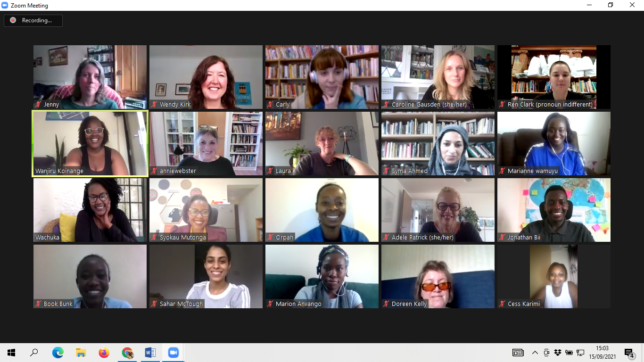
Book Bunk had had big goals for their libraries, the research, and the inventory before the pandemic in 2020, and, while some shape-shifting had to be done to adapt to the radically different circumstances, they continued to thrive and develop. The team expanded, two new departments – Communication and Digital Life – were created, and various different and diverse projects and events were launched, such as the architectural restoration of two branches, the Kaloleni Library and the Eastlands Library, both of which created much needed working opportunities for locals.
“A dream come true”, according to Syokau Mutonga, who’s responsible for Research and Inventory at Book Bunk, was the cataloguing and digitising of the colonial archive in the library, a collection of items that are all endangered for different reasons – rare and sometimes even one-of-a-kind material that needs extra care and attention to preserve it for future generations.
If you are curious about Book Bunk as well as the restoration projects they have been undertaking and the way those intersect with Nairobi’s history, their podcast “A Palace for the People” – named after Eric Klinenberg’s great book Palaces for The People: How Social Infrastructure Can Help Fight Inequality, Polarization, and the Decline of Civic Life – is the perfect opportunity for you to learn more and to broaden your horizon!
Another fascinating project that Book Bunk has been busy with is the tracing of Nairobi’s library ecosystem, the aim of which is to ‘map’ the library landscape of the metropole. How many libraries are there in the Nairobi Metropolitan area? And how many of them are still in operation? In case you’re wondering, the answer is 871 and 149, respectively. Notably, after these results, Book Bunk extended their research to a highly ambitious country-wide project which will be covered by and discussed in “A Palace for the People”, so don’t forget to tune in!
What these past months have taught them, Book Bunk tell us, is that it is never only about having a library there, physically. It is about all the different and various ways in which the library is connected to the local community – and these connections of course need to be upheld somehow, even when face-to-face encounters are no longer possible. Luckily, it was nothing new for the Book Bunk team to be working with technology, digital devices and social media, and a number of online events made it possible to reach people, for example the 2020 “A Night at the Library” Gala, with virtual meet and greets, an exciting art auction, and a musical theatre piece.
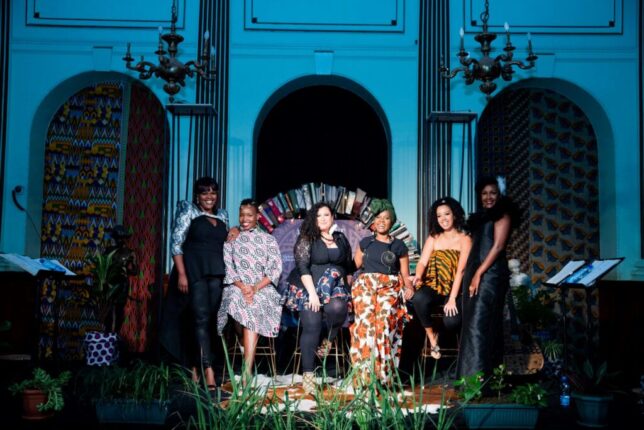
What about GWL, though? How has the Women’s Library dealt with the stumbling blocks thrown our way by the pandemic? First of all, we’ve taken it as an opportunity to catch up on everything digital. All of a sudden, Zoom – a video conference software programme some had never heard of and that seemed scarily alien at that point – became the primary means of staying in touch and keeping different projects going. However, it was not only the GWL team who needed support and encouragement with all these things: many of the regular participants in the various groups and projects similarly needed help with their digital skills, some never having used a smartphone or tablet before or not knowing how to participate in an online video conference. Thanks to some funding we secured, even those who previously had not had access to digital devices could be given the tablets or smartphones necessary for them to be able to keep attending meetings, events and workshops, get support with their reading and writing skills, and to stay in touch. After all, social isolation has been an issue that so many of us have been struggling with over the past months, and the online events and weekly meetings hosted by GWL hopefully gave people a silver lining and an escape from their loneliness or from immense, mind-numbing boredom (there’s only so much sourdough or banana bread one can bake to pass the time, after all).
With case numbers falling in autumn of 2020, GWL was able to open its doors again for the “Collecting in the Time of Coronavirus” exhibition from September to November. With a lot of time on their hands, both first-time donors and long-time champions had taken the opportunity to go through their belongings, keen to share big and small parts of their personal histories with the library.
In 2021, GWL then hosted its second digital Open the Door festival in a row, the theme of which was writers who are artists and artists who are writers, and how these two practices are woven together. Having learned from the previous year’s experiences, GWL offered a wide variety of online content and events people could immerse themselves and participate in from home, such as our Calm Slam, our Poetry Workshops or our In Conversation events, and which gave people the chance to learn more about different artists and writers, among them this year’s three spotlighted women – Wendy Wood, Edith Simon, and Zarina Hashmi.
This summer, we were also able to open our doors for two amazing exhibitions: Ingrid Pollard’s solo exhibition “No Cover Up” on the crucial Lesbian Archive held within GWL, as well as our still ongoing exhibition “Life Support: Forms of Care in Art and Activism” which can be visited and admired until 16 October 2021. We are immensely proud to have been able to hold these exhibitions during such a challenging time, as they have provided a way for people to connect and engage with our collections.
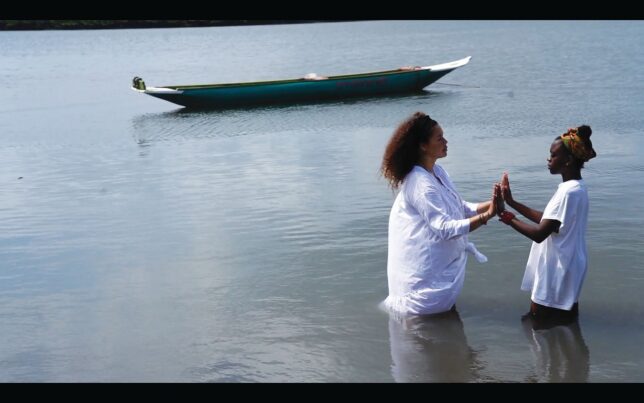
The experiences gained from these past eighteen months – the ups and downs and all the in-betweens – provided a lesson to both Book Bunk and GWL that has proved invaluable and that has been summed up wonderfully by Syokau: we now know that we can do anything if we put our minds to it; we can “make these libraries the inclusive spaces that they need to be: palaces for the people”
With many thanks to the British Council, for funding this collaboration with Book Bunk.



